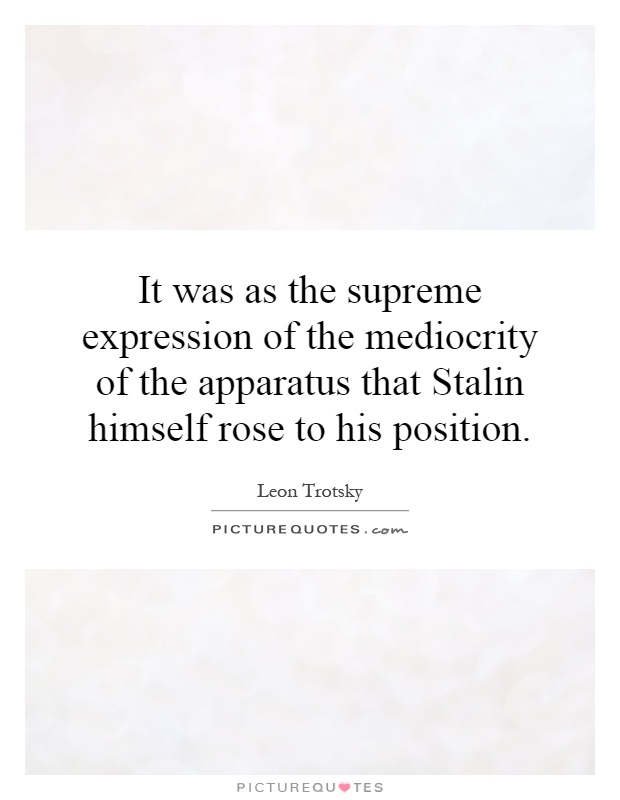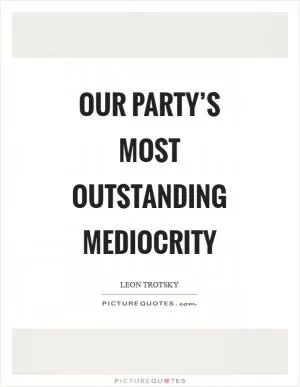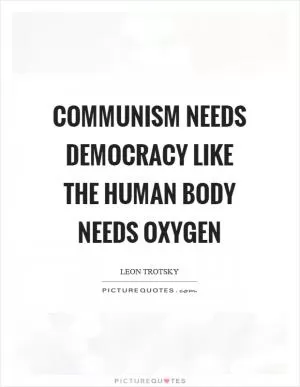
It was as the supreme expression of the mediocrity of the apparatus that Stalin himself rose to his position

It was as the supreme expression of the mediocrity of the apparatus that Stalin himself rose to his position
The statement "It was as the supreme expression of the mediocrity of the apparatus that Stalin himself rose to his position" in the context of Leon Trotsky sheds light on the complex dynamics within the Soviet Union during the early 20th century. Trotsky, a prominent Bolshevik revolutionary and a key figure in the Russian Revolution, found himself in direct opposition to Joseph Stalin, who eventually rose to power and became the leader of the Soviet Union.Trotsky's assessment of Stalin as a mediocre figure within the Communist Party apparatus reflects his belief that Stalin lacked the intellectual and revolutionary fervor that characterized the early Bolshevik movement. Trotsky, a brilliant orator and strategist, viewed Stalin as a bureaucratic functionary who relied on manipulation and coercion to consolidate power. In Trotsky's eyes, Stalin's rise to power was not a result of his revolutionary zeal or ideological commitment, but rather a product of the inherent flaws and weaknesses of the Soviet political system.
Stalin's ascent to power can be seen as a manifestation of the inherent contradictions within the Soviet apparatus. The Communist Party, originally founded on the principles of proletarian revolution and socialist transformation, had become increasingly bureaucratic and ossified under Stalin's leadership. The party apparatus, once a vehicle for revolutionary change, had become a tool for maintaining the status quo and consolidating power in the hands of a select few.
Trotsky's critique of Stalin as a mediocre leader highlights the tension between revolutionary ideals and bureaucratic realities within the Soviet Union. While Trotsky remained committed to the principles of socialism and proletarian revolution, Stalin's rise to power represented a departure from these ideals and a shift towards a more authoritarian and repressive form of governance.












 Friendship Quotes
Friendship Quotes Love Quotes
Love Quotes Life Quotes
Life Quotes Funny Quotes
Funny Quotes Motivational Quotes
Motivational Quotes Inspirational Quotes
Inspirational Quotes